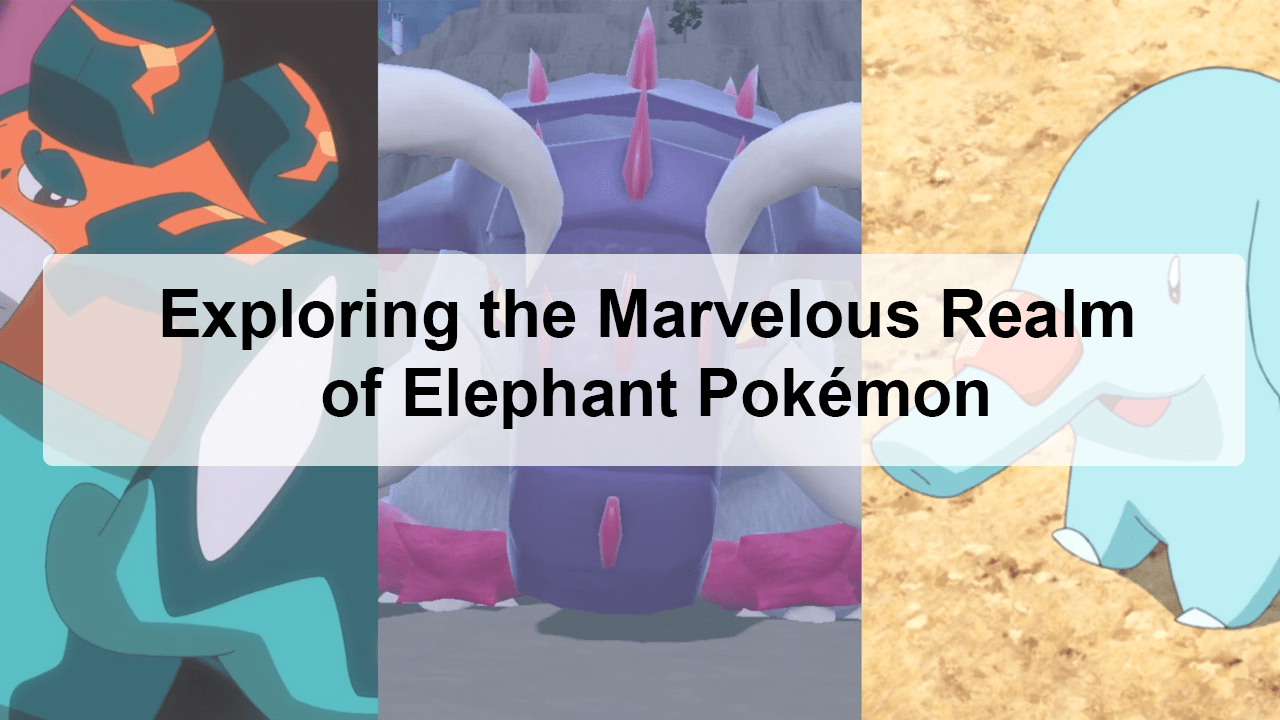Have you ever heard about Pokemonpron? It’s a fascinating niche that’s been gaining traction in recent years, blending the world of Pokémon with pronunciations and linguistic quirks that fans absolutely love. Whether you’re a hardcore Pokémon enthusiast or just curious about how people pronounce these pocket monsters, this guide is here to break it all down for you. Get ready to dive deep into a world where Pikachu meets phonetics, and Ash meets accent enthusiasts.
Pokemonpron might sound like a made-up term, but trust me, it’s a real thing. This phenomenon isn’t just about saying Pokémon names correctly; it’s about understanding the cultural and regional nuances that come with pronunciation. From Pikachu to Charizard, every Pokémon has its own set of quirks that make it unique. So, if you’ve ever wondered why some people say “Pikachu” with a Spanish twist or “Bulbasaur” with a British flair, you’re in the right place.
In this guide, we’ll explore everything you need to know about Pokemonpron. We’ll cover the basics, delve into the complexities, and even touch on some fun facts that’ll make you the life of any Pokémon party. So, buckle up, grab your Pokédex, and let’s uncover the secrets of Pokemonpron together. Trust me, it’s gonna be lit!
Read also:Insights Into Telugu Sex Culture Traditions And Perspectives
What is Pokemonpron? The Basics You Need to Know
Let’s start with the basics. Pokemonpron refers to the art of pronouncing Pokémon names correctly—or, in some cases, hilariously wrong. It’s not just about saying “Pikachu” or “Charmander” the way it’s written; it’s about embracing the cultural differences that influence how we say these names. For example, a French speaker might pronounce “Bulbasaur” with a soft “r,” while a Japanese speaker might emphasize the “u” sound. It’s all about context, baby!
Here’s the thing: Pokémon has fans all over the world, and each region has its own way of saying things. Some names are phonetically similar across languages, while others are completely different. This diversity is what makes Pokemonpron so interesting. It’s not just about the names themselves; it’s about the stories behind them and how they reflect the cultures they come from.
Why Does Pokemonpron Matter?
Pokemonpron matters because it connects people. Think about it: when you meet someone who shares your love for Pokémon, the first thing you do is start naming your favorite pocket monsters. But what happens when you say “Gengar” and they say “Gengaa”? That’s where the fun begins. Pokemonpron bridges the gap between different accents and dialects, creating a shared experience that transcends borders.
- Pokemonpron highlights linguistic diversity.
- It fosters a sense of community among fans.
- It adds a layer of complexity to the Pokémon universe.
History of Pokémon and Its Linguistic Evolution
Pokémon has been around since 1996, and over the years, it’s evolved in more ways than one. The original games were developed in Japan, so many Pokémon names have Japanese roots. When Pokémon went global, translators had to adapt these names to fit different languages and cultures. This process led to some interesting variations that fans still debate to this day.
For example, did you know that “Pikachu” is pronounced differently in Japanese? In Japan, it’s pronounced “Pee-kah-chew,” with a soft “u” sound at the end. In English, however, it’s usually pronounced “Pye-kah-chew.” These small differences might seem trivial, but they’re part of what makes Pokémon so fascinating.
How Pokémon Names Are Translated Across Languages
Translating Pokémon names isn’t as simple as it sounds. Translators have to consider factors like phonetics, cultural relevance, and even trademark laws. Some names stay the same across languages, while others are completely changed to fit local tastes. For instance, “Onix” remains the same in most languages, but “Rattata” becomes “Rattatac” in French.
Read also:Luxmovies Hub Your Ultimate Streaming Destination
Here’s a fun fact: some Pokémon names are based on wordplay that only makes sense in certain languages. For example, “Lapras” is a combination of “lap” and “plasma,” which refers to its ability to control water. In Japanese, however, its name is “Laplace,” which is a nod to the mathematical concept of Laplace transforms. Cool, right?
Common Mispronunciations in the Pokémon World
Even the most dedicated Pokémon fans make mistakes when it comes to pronunciations. Some names are just tricky, especially if you’re not familiar with the language they come from. Let’s take a look at some of the most common mispronunciations in the Pokémon world:
- Gyarados: Often mispronounced as “Jye-rah-doss,” when it should be “Gee-ah-ra-doss.”
- Vaporeon: Sometimes said as “Vap-er-ee-on,” instead of “Vuh-por-ee-on.”
- Psyduck: This one’s a classic. People often say “Sai-duck” instead of “Sai-dahk.”
These mispronunciations aren’t just funny; they’re a testament to the complexity of language. Every time someone says “Jye-rah-doss” instead of “Gee-ah-ra-doss,” they’re contributing to the rich tapestry of Pokemonpron.
Why Do People Mispronounce Pokémon Names?
Mispronunciations happen for a variety of reasons. Sometimes it’s because of regional accents, other times it’s because of unfamiliarity with the source language. For example, English speakers might struggle with Japanese names like “Mewtwo,” while Japanese speakers might find English names like “Onix” challenging. It’s all about perspective, man.
Pokemonpron Around the World
Pokemonpron isn’t limited to English speakers. Fans all over the world have their own ways of saying Pokémon names, and it’s fascinating to see how these variations reflect local cultures. Let’s take a quick trip around the globe to explore some of the most interesting Pokemonpron trends:
Pokemonpron in Europe
In Europe, Pokémon names often reflect the local language and culture. For example, in Spain, “Pikachu” is pronounced “Pee-kah-chew,” just like in Japan. In France, however, “Bulbasaur” becomes “Bulbizarre,” which sounds completely different but still has the same meaning.
Pokemonpron in Asia
In Asia, Pokémon names often stay close to their Japanese roots, but there are still some interesting variations. In China, for example, “Charmander” becomes “Huo Long,” which means “fire dragon.” In Korea, “Pikachu” is pronounced “Pikachu” with a slight Korean twist, making it sound softer and more melodic.
The Role of Accents in Pokemonpron
Accents play a huge role in how Pokémon names are pronounced. Whether you’re from New York, London, or Sydney, your accent affects the way you say things—and that includes Pokémon names. This diversity is what makes Pokemonpron so dynamic and engaging.
For example, a British fan might say “Charizard” with a soft “r,” while an American fan might emphasize the “z” sound. These small differences might not seem like a big deal, but they add depth and character to the Pokémon universe.
How Accents Influence Pokemonpron
Accents influence Pokemonpron in several ways. They can change the way vowels are pronounced, alter the stress patterns in words, and even add new sounds that aren’t present in the original name. This flexibility allows fans to express their individuality while still being part of a global community.
Tips for Mastering Pokemonpron
Mastering Pokemonpron isn’t as hard as it sounds. With a little practice and some insider tips, you’ll be pronouncing Pokémon names like a pro in no time. Here are a few tips to get you started:
- Listen to native speakers. YouTube and podcasts are great resources for hearing how Pokémon names are pronounced in different languages.
- Practice regularly. The more you say Pokémon names out loud, the better you’ll get at pronouncing them correctly.
- Embrace your accent. Don’t be afraid to put your own spin on Pokémon names. After all, that’s what makes Pokemonpron so fun!
Common Pitfalls to Avoid
While learning Pokemonpron, there are a few pitfalls you should avoid. For example, don’t assume that every Pokémon name is pronounced the same way in every language. Also, don’t be too hard on yourself if you make mistakes—everyone does it!
Pokemonpron and the Pokémon Community
Pokemonpron is more than just a linguistic phenomenon; it’s a vital part of the Pokémon community. Fans love to share their favorite pronunciations and debate which ones are the most accurate. This shared passion creates a sense of camaraderie that transcends borders and languages.
For example, online forums and social media groups are full of discussions about Pokemonpron. Fans post videos of themselves saying Pokémon names in different accents, and others chime in with their own interpretations. It’s a beautiful thing, man.
How Pokemonpron Unites Fans
Pokemonpron unites fans by celebrating linguistic diversity. Instead of focusing on what’s “right” or “wrong,” fans embrace the differences that make each other unique. This inclusivity is what makes the Pokémon community so special.
Conclusion: Dive Into the World of Pokemonpron
Pokemonpron is a fascinating niche that combines the worlds of Pokémon and linguistics. Whether you’re a seasoned fan or a newcomer to the scene, there’s always something new to discover. From mispronunciations to cultural nuances, Pokemonpron adds a layer of complexity and fun to the Pokémon universe.
So, what are you waiting for? Grab your Pokédex, fire up your favorite Pokémon game, and start exploring the world of Pokemonpron. And don’t forget to share your findings with the community. Who knows? You might just start the next big trend!
Call to Action: Leave a comment below and let us know your favorite Pokémon pronunciation. Or, if you have any questions about Pokemonpron, feel free to ask. We’d love to hear from you!
Table of Contents
- What is Pokemonpron? The Basics You Need to Know
- Why Does Pokemonpron Matter?
- History of Pokémon and Its Linguistic Evolution
- How Pokémon Names Are Translated Across Languages
- Common Mispronunciations in the Pokémon World
- Why Do People Mispronounce Pokémon Names?
- Pokemonpron Around the World
- The Role of Accents in Pokemonpron
- Tips for Mastering Pokemonpron
- Pokemonpron and the Pokémon Community

